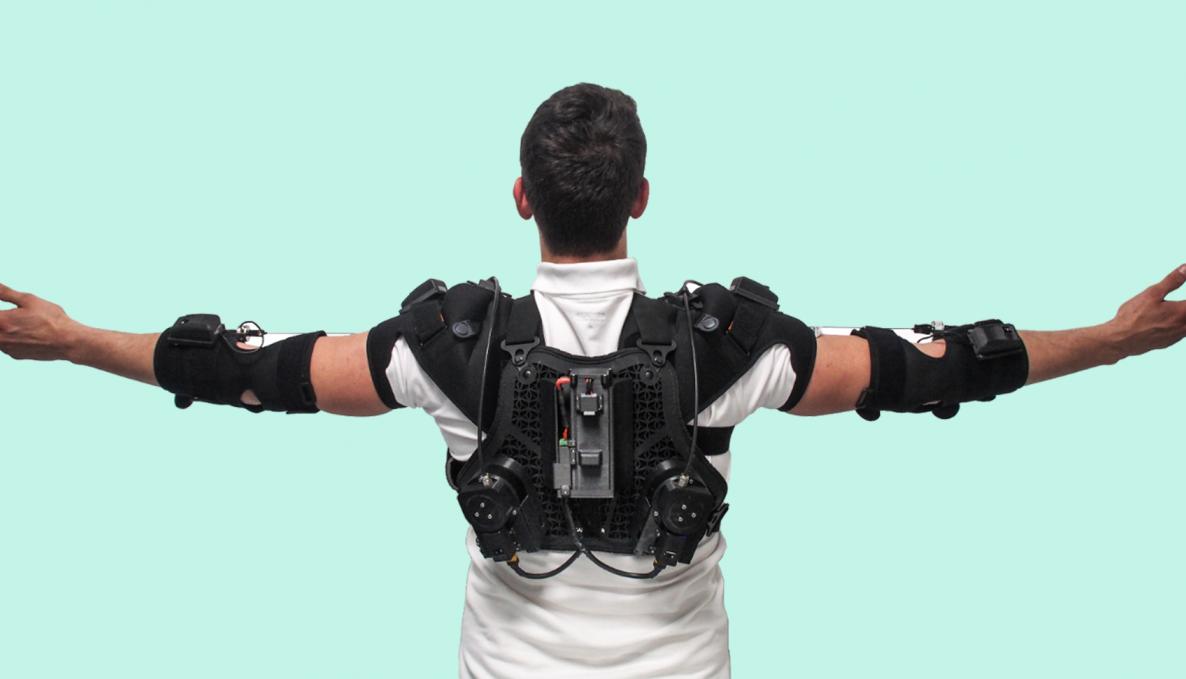Enhancing Human-Machine symbiosis via Exosuits

Biosketch
Lorenzo Masia graduated in Mechanical Engineering at “Sapienza” University of Rome in 2003 and in 2007 He accomplished his PhD in “Mechanical Measurement for Engineering” at the University of Padua. He started his path in robotics spending two years at the Mechanical Engineering Dept. of the Massachusetts Institute of Technology (MIT) (from Jan- 2005 to Dec 2006) working at the Newman Lab for Biomechanics and Human Rehabilitation.
He was then Team Leader at the Italian Institute of Technology (IIT) in the Robotics Brain and Cognitive Sciences Department and He started his academic path as Assistant Professor at the School of Mechanical & Aerospace Engineering (MAE) at Nanyang Technological University (NTU) of Singapore (2013-2018).
He was Associate Professor in Biodesign at the Department of Biomechanical Engineering of the University of Twente (The Netherlands) from June 2018 to March 2019. Now, since April 2019, He is Full Professor in Medical Technology at Heidelberg University (Germany) at the Institute of Computer Engineering or Institut für Technische Informatik (ZITI), leading the ARIES Lab (Assistive Robotics and Interactive ExoSuits).
Prof Masia was awarded multiple times in the leading conferences in Biorobotics and Robotic Rehabilitation winning two IEEE Best Student Paper Awards (IEEE ICORR2015 and IEEE Biorob2016), two IEEE Best Paper Awards (IEEE ICORR2011 and IEEE BIOROB 2022), and finalists of "Best Human-Robot Interaction (HRI) Paper Award" at IEEE ICRA 2017.
Prof Masia is Associate Editor of IEEE Robotics and Automation Letters (RAL), IEEE Transaction in Neural Systems and Rehabilitation Engineering (TNSRE), Journal of NeuroEngineering and Rehabilitation (JNER) and Wearable Technologies.
He has been appointed three times Program Chair for the IEEE International Conference in Rehabilitation Robotics (ICORR) 2015, IEEE Biorobotics and Biomechatronic Conference (BIOROB) 2016 and International Conference on Neurorehabilitation (ICNR 2018).
He will be General Chair for IEEE BIOROB 2024 the leading conference in Biomedical Robotics and Biomechatronics hosted in Heidelberg.
Abstract
Soft exoskeletons or exosuits have been introduced in the last decade as possible candidates to overcome the limitations and acceptability of wearable technology. Despite exosuits initially promised tangible improvements, yet their soft wearable architecture presents strong drawbacks, placing this technology more in a complementary position rather than on a higher step of the podium with respect to their predecessors.
During my speech, I will introduce the progress of our research on soft wearable exosuits at the Assistive Robotics and Interactive Exosuits Lab (ARIES), by presenting novel solutions on mechanical design, a novel implementation of control strategies based on machine learning to master the non-linear behaviors. I will discuss in detail how using biosignals by means of real-time techniques based on musculoskeletal dynamics to provide a symbiotic interface between the exosuit and the user and introduce also our latest results in clinical applications.
